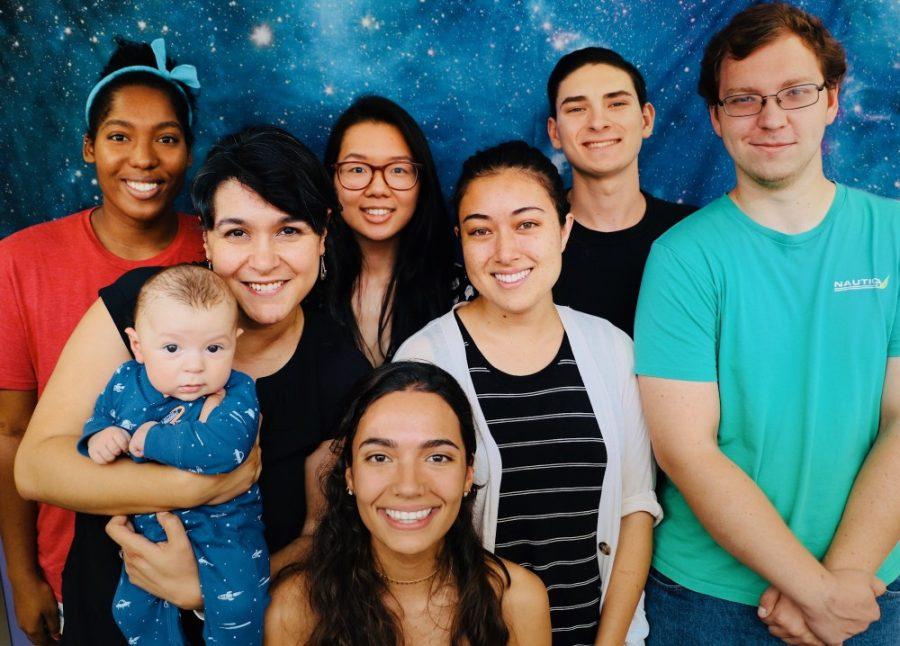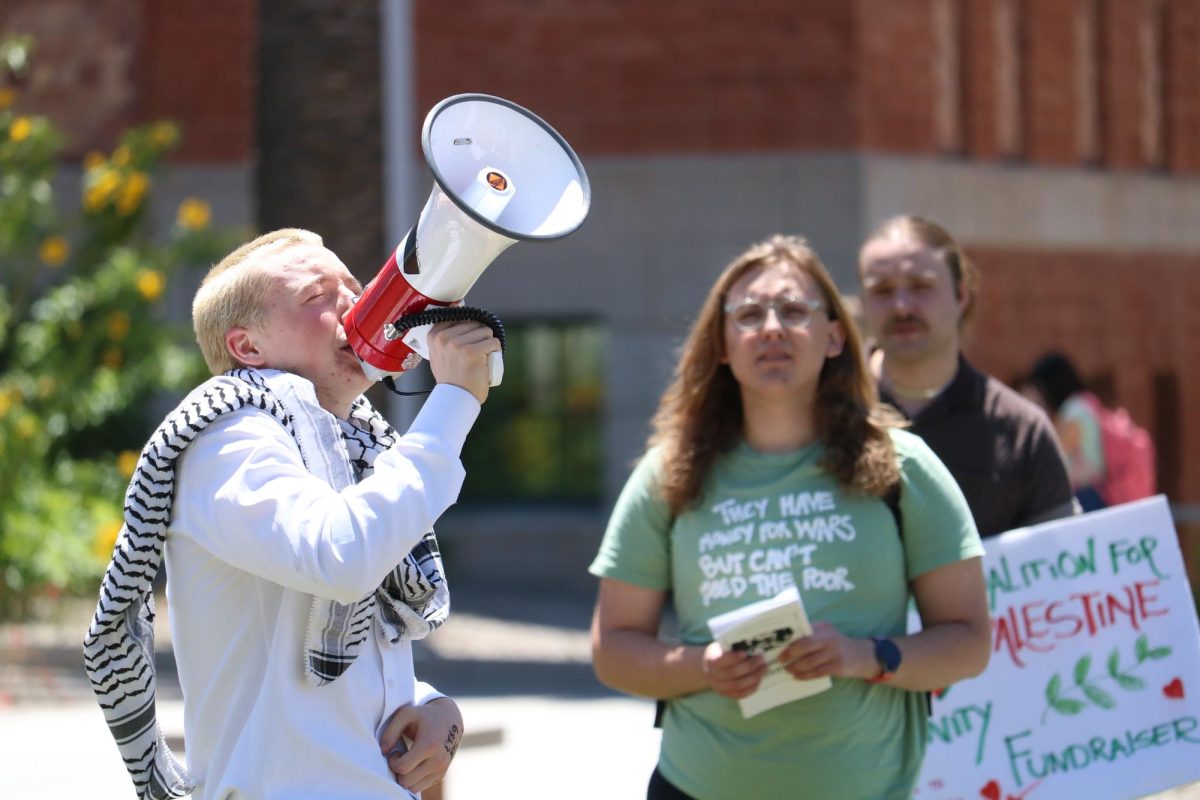Where does life come from? How did it evolve? Does it exist beyond our planet? These most basic questions of existence seem, to some degree, almost unanswerable, but they are exactly the questions that Betul Kacar, a professor of astronomy and of molecular and cellular biology, is tackling in her research laboratory at the University of Arizona.
A recent transplant from Harvard University, Kacar joined UA’s Center for Astrobiology and Molecular and Cellular Biology Department in January 2018. With support from NASA’s Astrobiology Institute and Exobiology Program, the National Science Foundation and the John Templeton Foundation, Kacar’s research laboratory on campus is already gaining national attention.
Kacar began her scientific career researching Parkinson’s and Alzheimer’s disease, but she said when she came across the field of astrobiology during graduate school, she knew she had found her true calling.
At first Kacar said she was hesitant. Could her skills as a cellular biologist be translated into researching the origins of life?
“Most of us do not think there is a place for our field in the study of biology in space. Those questions were left to the physicists and astronomers for the most part, but I think that cellular biologists will play a fundamental role in revealing ancient biology on our planet,” Kacar said. “Once life is detected beyond our planet, our broad training and skills will be invaluable.”
According to Kacar, the UA is the perfect place for researchers who are, like herself, interested in astrobiology due to UA’s large community of astronomers and physicists and its forward-thinking molecular and cellular biology department.
Working with a team of graduate and undergraduate students, Kacar’s UA lab is already well underway with research projects examining a series of key questions in astrobiology.
“One big question in astrobiology is: If life exists elsewhere in the universe, should we expect it to be similar or different to us?” Kacar said.
RELATED: Take a peek at the red planet
To address this question, Kacar is engineering bacteria to express ancient genes that are millions of years old and the predecessors of the proteins our bodies use today.
Kacar says she plans to observe how these genes change or evolve in her laboratory conditions. Through these experiments, Kacar hopes to gain insights into how evolution might repeat itself.
If the ancient genes of Kacar’s bacteria evolve to resemble their modern structures, evolution may have limited possibilities and the life that develops on other planets is likely to be similar to our own.
Kacar’s laboratory is also studying the impact of the evolution of cellular machines, or proteins, on the carbon and nitrogen cycles on Earth and in its atmosphere.
Cathryn Sephus, a molecular and cellular biology senior with a minor in astronomical studies, joined the Kacar’s research group this semester after being awarded the Arizona Space Grant in astrobiology.
“Everyone in the lab has a particular background. I have experience with computer programming and bioinformatics. Our postdoctoral fellow Amanda Garcia has training as a geologist.Our newest lab member is focused on biochemistry,” Sephus said.
Astrobiology requires an interdisciplinary approach to scientific questions, Sephus said. That is one reason she was drawn to the field — it combined her love of molecular biology and astronomy in its research.
Sephus thinks of astrobiology like a puzzle where you can start to ask really amazing questions about life elsewhere in the universe, and even about how it developed closer to home, after you have combined all the different pieces from the technology of the space race to our own chemistry.
For Sephus, her research experiences have helped her contextualize and understand what she is learning in the classroom and has offered her a community of people who share her love of space and biology.
“The Kacar lab is like a family,” Sephus said.
Sephus recommends anyone interested in research talk with their professors and find a lab experience just as amazing as her own.
For Kacar, being a scientist not only means conducting research but also mentoring the next generation of scientists, like Sephus, and communicating science to teachers and the public.
RELATED: University of Arizona astrobiology minor tackles the age old question, ‘Are we alone?’
“It is time for scientists to ask themselves: What can I do to change public opinion? How can I integrate what happens in my lab into high school classrooms and relate issues that affect humans day to day?” Kacar said.
In 2012, Kacar expanded her efforts by becoming a founder of SAGANet alongside four colleagues, which is an organization that created a website and platform for astrobiologists like herself to engage the public.
“Currently, SAGANet has over 2,000 members who actively use the platform to learn about astrobiology,” Kacar said.
SAGANet has a web series with NASA called “Ask an Astrobiologist” as well as resources for high school science teachers to create astrobiology lessons for their classrooms and mentorship opportunities for up-and-coming students in the astrobiology field.
Even with her research and community outreach, Kacar said she is just getting started.
“I am very passionate about what I do, for me, this doesn’t even feel like work,” Kacar said.
Kacar will start teaching astrobiology seminars for graduate students and courses for undergraduates on ancient biology at the UA next year.
Kacar said she hopes to remain at UA and continue to expand her interdisciplinary research by reaching out to international partners and continuing to pursue scientific questions. In the years to come, Kacar hopes to look into Earth’s geological and fossil records to determine the environmental factors that drove the emergence of life on Earth and helped it flourish.
Kacar’s research and outreach were recognized earlier this year by NASA, who awarded her a prestigious early-career fellowship. As the search for life in space continues, Kacar will be searching for answers to life’s fundamental questions from her laboratory right here on Earth, at the UA.
Follow Randall Eck on Twitter















